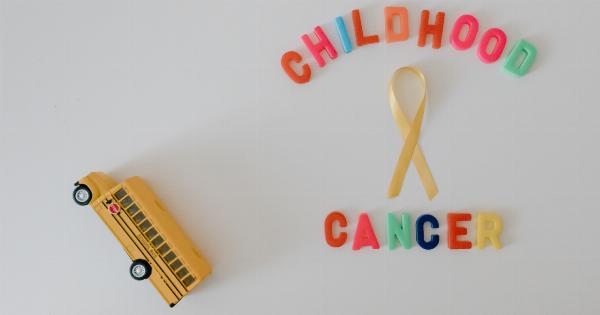In vitro fertilization (IVF) has revolutionized the fertility treatments by helping millions of couples achieve their dreams of becoming parents.
However, as with any medical procedure, there are concerns about potential risks and adverse effects, particularly in the long term. One such concern is the potential risk of childhood cancer in children conceived through IVF. This article explores the current knowledge and research regarding the association between IVF and childhood cancer.
Understanding IVF
IVF is a reproductive technology that involves fertilizing an egg with sperm outside the body in a laboratory. The resulting embryo is then transferred to the woman’s uterus.
IVF is commonly used for couples with infertility issues, and it has proven to be highly successful in many cases.
The Link between IVF and Childhood Cancer
The concern about childhood cancer in IVF-conceived children is primarily based on the concept of epigenetics. Epigenetics refers to the modification of gene expression without changing the underlying DNA sequence.
Studies have shown that the process of IVF, including the manipulation of eggs and embryos in the laboratory, can potentially lead to epigenetic alterations that could increase the risk of certain diseases, including cancer.
Evidence from Studies
Several studies have been conducted to investigate the association between IVF and childhood cancer.
While the majority of these studies have not found a significant increase in the overall risk of childhood cancer in IVF-conceived children, there have been some concerning findings.
Increased Risk of Certain Types of Childhood Cancer
A Danish study published in 2013 found a slightly increased risk of certain types of childhood cancers, such as hepatoblastoma and embryonal tumors, in IVF-conceived children compared to naturally conceived children.
However, the absolute risk was still relatively low, and further research is needed to confirm these findings.
Potential Factors Contributing to the Risk
Several factors associated with IVF treatment may contribute to the potential increase in the risk of childhood cancer.
These include the use of fertility drugs, the manipulation of eggs and embryos in the laboratory, and variations in the hormonal environment during pregnancy. However, it is important to note that the exact mechanisms by which these factors may influence cancer risk are still unclear.
Limitations of the Studies
While the existing studies provide valuable insights, it is essential to acknowledge their limitations. Many of the studies have a relatively small sample size and rely on self-reported data, which may introduce biases.
Additionally, the long-term effects of IVF on cancer risk are still not well understood due to the relatively recent emergence of IVF technology.
Additional Factors to Consider
It is worth noting that infertility itself has been associated with a higher risk of certain types of cancer. Therefore, it is challenging to attribute the increased risk solely to IVF treatment.
Furthermore, the overall risk of childhood cancer in IVF-conceived children is still relatively low, and the majority of children born through IVF are healthy.
Recommendations for Future Research
Given the complexities surrounding IVF and childhood cancer risk, further research is necessary to gain a more comprehensive understanding.
It is crucial to conduct larger, long-term studies that control for potential confounding factors and explore the specific epigenetic changes that may be associated with IVF treatment.
Conclusion
While the association between IVF and childhood cancer remains a topic of scientific investigation, the current evidence suggests that the increased risk, if any, is minimal.
It is essential for couples considering IVF or currently undergoing treatment to be informed about the potential risks and have open discussions with their healthcare providers to make well-informed decisions.






























